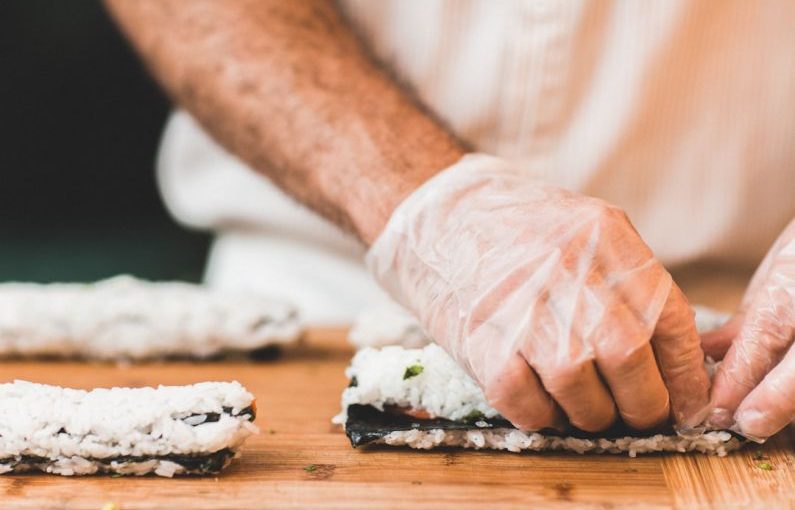Sushi, a culinary art form that has captivated taste buds around the world, has its origins deeply rooted in Japan. The meticulous preparation and presentation of sushi are not just about creating a delicious meal but also about honoring tradition and showcasing the skill of the chef. In Japan, sushi making is considered a revered craft that requires years of training and dedication to master. Let’s delve into the world of sushi making in Japan and uncover the secrets behind this exquisite cuisine.
**The Essence of Sushi Making**
At the heart of sushi making lies the concept of “shari” and “neta.” Shari refers to the vinegared rice, which serves as the base of the sushi. Neta, on the other hand, refers to the topping placed on the rice, which can include raw fish, seafood, or vegetables. The balance between the shari and neta is crucial in creating the perfect piece of sushi. Chefs pay meticulous attention to the quality of the ingredients, the temperature of the rice, and the seasoning to ensure that each bite is a harmonious blend of flavors and textures.
**The Role of the Chef**
In Japan, sushi chefs, known as “itamae,” undergo rigorous training that can last for many years before they are considered masters of their craft. The training involves learning not only how to prepare the rice and toppings but also the art of knife skills, fish butchery, and presentation. Itamae are expected to have a deep understanding of the ingredients they work with, including where they come from, how they are best prepared, and how they can be paired to create a symphony of flavors. The precision and discipline required of sushi chefs are what set them apart and elevate sushi making to an art form.
**The Ritual of Sushi Making**
Sushi making in Japan is not just about the end product but also about the process itself. Each step, from washing the rice to slicing the fish, is performed with precision and care. The act of forming the rice into bite-sized pieces and delicately placing the neta on top is a ritual that symbolizes respect for the ingredients and the diners who will enjoy the sushi. The focus on mindfulness and attention to detail is what elevates sushi making to a meditative practice that honors tradition and craftsmanship.
**The Importance of Tradition**
Tradition plays a significant role in sushi making in Japan. The techniques and recipes passed down from generation to generation form the foundation of this culinary art. Itamae not only learn how to make sushi but also the history and cultural significance behind each piece they create. The emphasis on tradition ensures that the art of sushi making remains authentic and respects the legacy of those who came before. By adhering to tradition, sushi chefs preserve the integrity of the craft and continue to uphold its reputation as a symbol of Japanese gastronomy.
**Honoring the Seasons**
In Japan, sushi making is deeply connected to the changing seasons. Itamae pay close attention to seasonal ingredients and flavors, incorporating them into their sushi to highlight the best that nature has to offer. From cherry blossom season in spring to the rich flavors of autumn, sushi chefs create menus that reflect the bounty of each season. By honoring the seasons in their sushi making, chefs not only showcase their creativity but also pay homage to the natural world and the rhythm of life.
**A Journey of Mastery**
The art of sushi making in Japan is a journey of mastery that requires dedication, discipline, and a deep respect for tradition. Itamae spend years honing their skills, learning from experienced chefs, and perfecting their techniques to create sushi that is not just a meal but a work of art. The meticulous attention to detail, the focus on quality ingredients, and the reverence for tradition are what make sushi making in Japan a revered craft that continues to captivate diners around the world.
In conclusion, sushi making in Japan is not just about creating a delicious meal but also about honoring tradition, showcasing skill, and paying homage to the natural world. The art of sushi making is a meditative practice that requires precision, discipline, and a deep understanding of ingredients. Itamae, through their dedication and mastery, continue to elevate sushi making to a culinary art form that celebrates the beauty of Japanese gastronomy.




